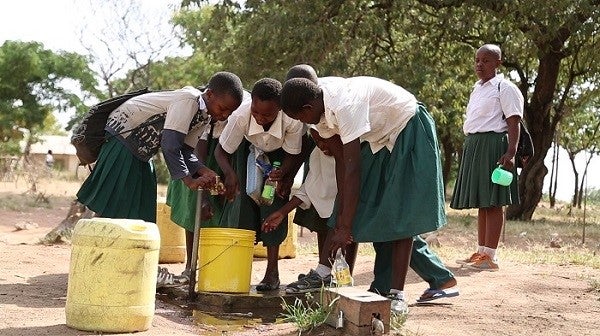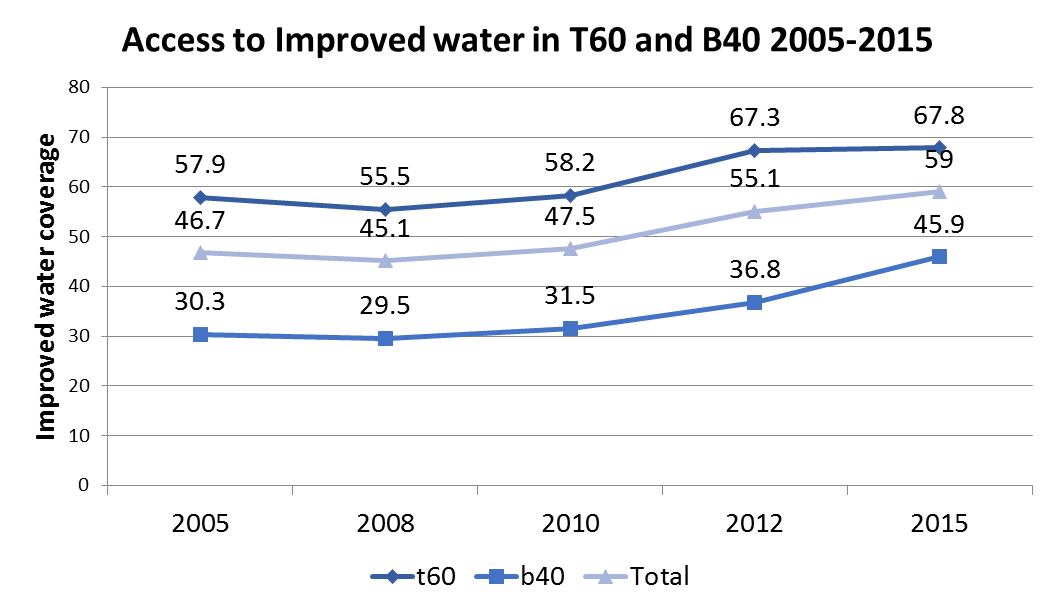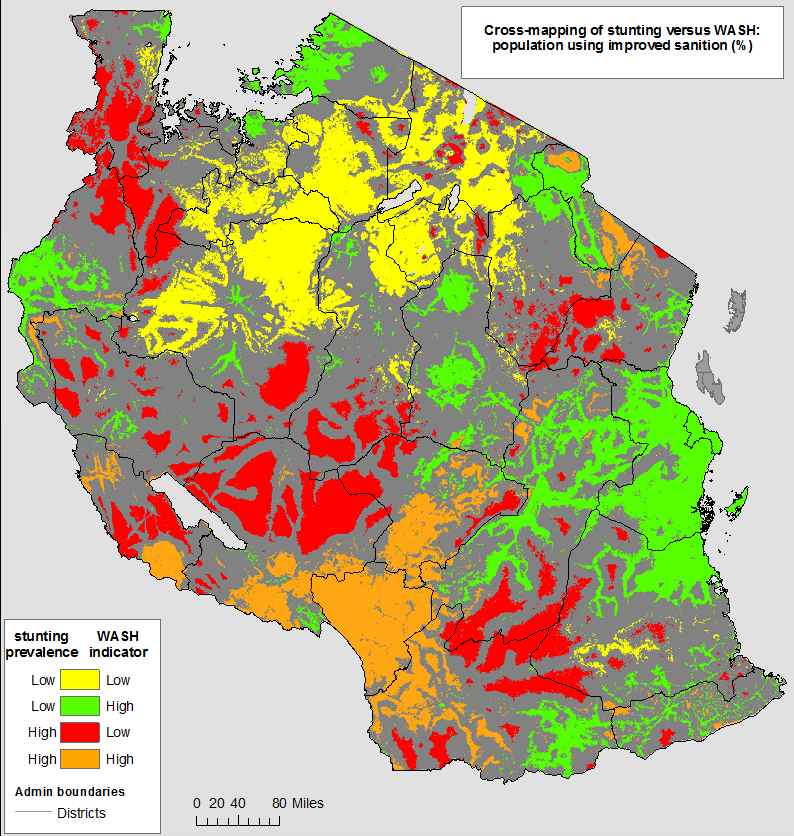
When it comes to economic success, Tanzania offers a model for the rest of Sub-Saharan Africa. Growth has averaged 6.5 percent per year over the past decade, and between 2007 and 2012 nearly a third of the poorest 40% of the population rose out of poverty. However, the progress towards improving water and sanitation access for all has not kept a similar pace.
A new report by the World Bank, ‘Reaching For The SDGs’ was launched by the Honorable Eng. Isack Kamwelwe, Minister of Water and Irrigation on March 20 in Dar es Salaam. In her welcome address, Ms. Bella Bird, Country Director for Tanzania, Malawi, and Burundi said, “adequate WASH is a crucial component of basic human necessities that allow a person to thrive in life”. The report shows how water and sanitation services need to advance substantially in order to achieve much needed improvements in health and wellbeing that will help the country fulfill its true potential. Progress in this area still has a long way to go.
The report focuses on three areas of concern in particular, which are hindering Tanzania from reaching the water and sanitation targets agreed in the Sustainable Development Goals (SDGs).
 Firstly, the challenges in rural areas remain large for both improved water and improved sanitation access. Despite significant investments, there has been a notable lack of progress in expanding access to rural improved water supply. Around two-thirds of the rural population in Tanzania live more than 30 minutes away from a functioning, improved water source , while about one-third have to travel more than an hour to fetch water, which most often is not fit to drink. Despite high levels of investment, 40% of all water points do not work, with 20% of them failing in their first year. Meanwhile, sanitation would have benefited with more funding and focus, with 41 million people using latrines, most of them a public health concern.
Firstly, the challenges in rural areas remain large for both improved water and improved sanitation access. Despite significant investments, there has been a notable lack of progress in expanding access to rural improved water supply. Around two-thirds of the rural population in Tanzania live more than 30 minutes away from a functioning, improved water source , while about one-third have to travel more than an hour to fetch water, which most often is not fit to drink. Despite high levels of investment, 40% of all water points do not work, with 20% of them failing in their first year. Meanwhile, sanitation would have benefited with more funding and focus, with 41 million people using latrines, most of them a public health concern.

Secondly, the quadrupling of the urban population since 1990 has put water supply and sanitation infrastructure under tremendous pressure. Improved water supply is irregular with low quality standards, and is expensive to many of the poor who rely on informal services. The report also highlighted a widening gap between rich and poor in access to sanitation services in particular, with all the recent gains in urban sanitation access accruing to the richer segments of the population. In urban areas in 2016, the poorest 40% were ten times less likely to have an improved sanitation service than the richest 60%.
In urban areas, to meet the SDGs by 2030 the resources need to be targeted to areas of high vulnerability and low access, with a focus on providing water that is reliable, affordable, and of good quality. For sanitation, Tanzania needs to make targeted pro-poor investments and adopt citywide sanitation approaches ensuring improved access and safe management of fecal sludge.


Tanzania urgently needs to close the service gaps in water supply and sanitation service delivery in order to improve human development outcomes. Interventions need to be coordinated across water, sanitation, and health sectors to help children reach their full potential in life. WASH goals are a cornerstone for other human development outcomes, in particular for health and education and eventually nurturing a more productive generation who are more likely to escape poverty.
In his keynote address, Honorable Eng. Isack Kamwelwe, Minister of Water and Irrigation, emphasized that it is crucial that Tanzania immediately tackle the water and sanitation challenges, by departing from the business as usual policies towards those that ensure more effective interventions promoting accountability and sustainability of investments.
Making these changes will require funding, well-informed and directed policies, and attentive follow up on implementation. However, such efforts will be worth the reward — they will lead to broad knock-on effects, bringing about not just greater productivity and economic benefits, but a healthier next generation capable of leading Tanzania’s future.




Join the Conversation